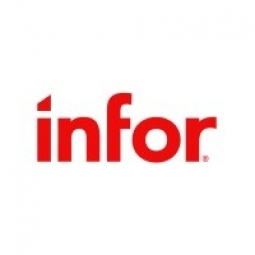公司规模
Large Corporate
国家
- Worldwide
产品
- Birst
技术栈
- Salesforce
- SSRS
- Jaspersoft
实施规模
- Enterprise-wide Deployment
影响指标
- Revenue Growth
- Customer Satisfaction
技术
- 平台即服务 (PaaS) - 数据管理平台
适用功能
- 销售与市场营销
用例
- 补货预测
服务
- 云规划/设计/实施服务
关于客户
该公司是世界领先的商业新闻机构之一。它以权威性、完整性和准确性而受到国际认可,为全球商业界提供重要的新闻、评论、数据和分析。该公司经历了从印刷到数字的重大转型,新的商业模式专注于订阅收入而不是广告收入。
挑战
该公司经历了从印刷到数字的重大转型,新的业务模式专注于订阅收入,而不是广告收入。该公司寻求一种解决方案,使整个组织的商业智能 (BI) 民主化,并推动公司向新的方向发展。目标是从基于广告收入的业务过渡到订阅收入模式,深入了解订户群,并为组织提供自助分析,以便做出数据驱动的决策。然而,该公司面临着技术挑战,包括高度定制的“意大利面条式”遗留应用程序以及需要替换 SSRS 和 Jaspersoft 报告解决方案。
解决方案
该公司之所以选择 Birst,是因为它与 Salesforce 的强大集成以及自动聚合多个数据源,从而为客户提供全方位的视角。Birst 易于使用的自助分析功能也是做出该决定的关键因素。实施 Birst 促成了 BI 门户的创建,业务用户可以自助方式探索受管控的数据集,从而减轻了分析团队的报告负担。
运营影响
数量效益

Case Study missing?
Start adding your own!
Register with your work email and create a new case study profile for your business.
相关案例.
Case Study
Procter & Gamble Implements Terra Technology's Demand Sensing for Improved Forecast Accuracy
Procter & Gamble (P&G) faced significant challenges in accurately forecasting short-term demand for their consumer products. Their existing 24-month forecast provided a good overview for monthly or weekly production, but it was insufficient for the immediate needs of supply chain planning and manufacturing teams. These teams required a short-term forecast to plan production effectively and avoid 'fire-fighting' practices. P&G needed a solution that could provide accurate short-term demand forecasts to ensure agility and flexibility in manufacturing, especially for products with very short production and order lead times. The company explored various solutions but found that most big software companies lacked the agility to meet their specific demand sensing needs. Terra Technology's Real-Time Forecasting, later known as Demand Sensing (DS), emerged as a promising solution due to its specialized focus on consumer packaged goods (CPG) demand planning and forecasting.
Case Study
Blue Bottle Coffee Enhances Ordering Accuracy and Reduces Waste with ML-Driven Demand Forecasting
Blue Bottle Coffee (BBC), a global coffee roaster and retailer, faced a significant challenge in managing the supply of pastries across its international network of cafes. The company was using a manual ordering system, where cafe leaders estimated the required quantity of pastries based on historical sales data, current inventory, and growth projections. This system was effective when BBC had a few cafes, but with over 70 cafes worldwide, it became inefficient and inaccurate. The inaccuracies led to either under-ordering, causing sell-outs and customer dissatisfaction, or over-ordering, resulting in food waste and profit loss. The suboptimal utilization of pastries was also affecting BBC's bottom line. Therefore, BBC needed a scalable, precise, and predictive ordering solution to improve pastry ordering accuracy, reduce food waste, and meet its sustainability goals.
Case Study
Designing an intuitive UI for effective product demand forecasting in retail
The client, a leading luxury store chain operating in over 100 countries, was facing challenges with their product demand forecasting process. The process involved a significant amount of manual work, with all sales-related data being kept in Excel tables and calculated manually. The client's merchandising and planning experts used a demand forecasting web application to make estimations of customer demand over a specific period of time. The solution calculated historical data and other analytical information to produce the most accurate predictions. However, the client wanted to improve the efficiency and effectiveness of this process, making it faster, more accurate, and less complicated for their employees. They sought to unify all processes under an intuitive UI.
Case Study
YAZAKI Europe Limited: Ensuring rapid, cost-efficient order fulfillment and quicker insights into business performance
YAZAKI Europe, a leading automotive supplier specializing in the production of customized wiring harnesses for car manufacturers, was facing challenges in meeting the automotive industry’s demand for same-day delivery. The company's continuous growth was impacting its ability to analyze performance and complete its end-of-month consolidation and reporting processes for its headquarters in Japan. The company needed to eliminate delays and manual processing in its logistics to ensure extremely efficient operations. The company also needed to boost its data analytics capabilities for its finance and controlling departments to accelerate the delivery of complex financial reports.
Case Study
How the Philadelphia 76ers Win Off the Court Using Machine Learning from DataRobot
The Philadelphia 76ers, a professional basketball team in the NBA, is part of a new wave of sports franchises that are leveraging data analytics to optimize both their on-court performance and business operations. The organization has a strong focus on using data to inform decision-making processes across all levels. One of the key challenges faced by the 76ers' Analytics Team was improving the efficiency of their season ticket renewal process. The team had been using data science and simple modeling techniques, but lacked a dynamic machine learning tool that could adapt and learn as more data was collected. This meant that the team had to do a lot of work in the offseason to produce a static model. The goal was to transform the renewal process from a once-a-year event into a year-round retention process.
Case Study
Business services company saves approx. 80% of projected deployment costs with Acumatica
Caystone Solutions Ltd., a small but ambitious company, aimed to provide a variety of services to entrepreneurs and individuals globally. To achieve this, Caystone needed to operate with extraordinary efficiency and be able to easily manage growth. The company required an accounting system that could support its own business requirements as well as its clients’. The system needed to be customizable, support multiple currencies, and unlimited users. It also needed to provide both Caystone and its clients anytime, anywhere access from any web browser. Caystone required a system that wouldn’t necessitate a big—and costly—hardware infrastructure. And Bahamas-based Caystone needed the comfort of knowing its client data was stored locally.







